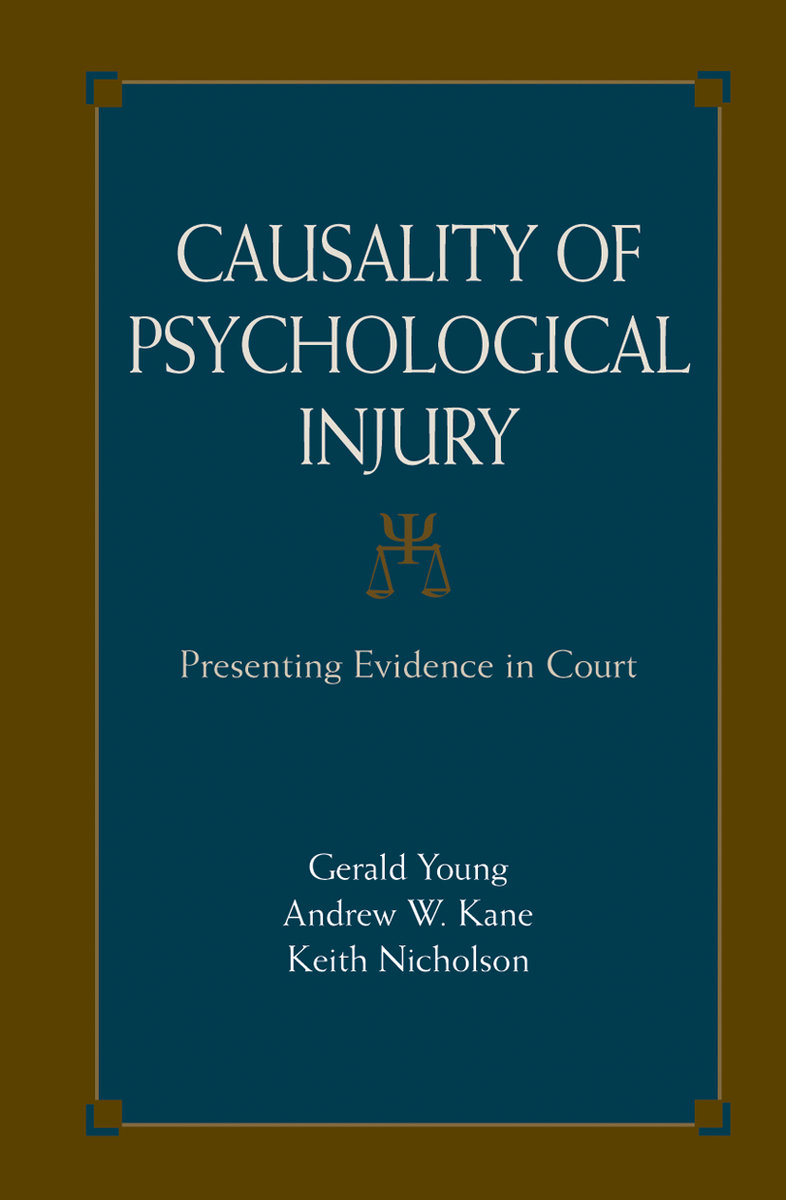Gerald Young, Ph.D., C. Psych., is an Associate Professor in the Department of Psychology at Glendon College, York University, Toronto, Canada. He teaches Rehabilitation Psychology to senior undergraduates. In addition, he is a licensed psychologist in Ontario and Quebec, practicing in rehabilitation, in particular. He is the author or co-author of four books, and multiple chapters and articles. He is a member of Canadian registers in clinical practice and disability assessment. He has undertaken over 1,000 assessments related to rehabilitation and disability claims for psychological injury, including after referral for medicolegal purposes from attorneys, insurance companies, and assessment companies. He is a member of the college policy and planning committee, having served in this function at the university level, as well. For the field of psychological injury and law, he is organizing the first (a) professional association, (b) the first academic journal, (c) the first graduate-level textbook related to the field, and (d) the first book series. Springer is considering supporting these publishing initiatives.
Andrew Kane, Ph.D., ABAP, is a licensed psychologist in private practice in Milwaukee. He is a diplomat of the American Board of Assessment Psychologists, is listed in the National Register of Health Service Providers in Psychology, and is a recipient of the Certificate of Professional Qualification in Psychology of the Association of State and Provincial Psychology Boards. He is a Professor at Wisconsin School of Professional Psychology, an Adjunct Clinical Professor in the department of Psychology at University of Wisconsin-Milwaukee, and an Associate Clinical Professor, Department of Psychiatry and Behavioral Medicine, Medical College of Wisconsin. He is the author or co-author of eight books and some five dozen professional papers and chapters. He served as a member of the Expert Panel on Psychiatric and Psychological Evidence of the Commission on Mental and Physical Disability Law of the American Bar Association, which helped produce the National Benchbook on Psychiatric and Psychological Evidence and Testimony, published by the ABA. He is a former president of the Wisconsin Psychological Association and of its Division of Forensic and Correctional Psychologists. Dr. Kane also served as a member of the board of the Wisconsin Psychological Association's forensic division. He served for ten years as a member of the Ethics Committee of the Wisconsin Psychological Association. Dr. Kane founded the Wisconsin Coalition on Sexual Misconduct by Psychotherapists and Counselors, a national model program. Dr. Kane has served as an expert in more than 3,000 civil cases involving a variety of issues.
Keith Nicholson, Ph.D., C. Psych, has had extensive clinical experience working with many different patient populations. He obtained his Ph.D. in Clinical Neuropsychology from the University of Victoria and, since then, has worked at the Toronto Western Hospital, now part of the University Health Network in Toronto, in addition to working at several community clinics and maintaining a private practice. Dr. Nicholson is now affiliated with the Comprehensive Pain Program at the Toronto Western Hospital. He has a particular interest in the psychology of chronic pain and clinical neuropsychology and has many publications in these and other areas of interest.



